Course modules
What you will study on this degree
Further guidance on modules
Modules are designated core or optional in accordance with professional body requirements, as applicable, and LJMU’s Academic Framework Regulations. Whilst you are required to study core modules, optional modules provide you with an element of choice. Their availability may vary and will be subject to meeting minimum student numbers.
Where changes to modules are necessary these will be communicated as appropriate.
Core modules
Project 1
30 credits
30 credits
Students develop, propose and pitch a live creative project. They go on to make and deliver the project in line with their project plan and then report and reflect on the process.
Intro to Filmmaking
15 credits
15 credits
Students will explore form and genre by producing a range of films, increasing in length and complexity across the module, before combining their experience and knowledge to produce a final film.
Students will also produce a reflective video essay exploring aspects of the film and the production process.
Intro to Audio
15 credits
15 credits
This module will introduce students to the key skills of audio recording and post-production. As this module is delivered on location and in the studio, the module provides an insight into standard industry practices of audio production. The course content is designed to provide students with the tools to produce high quality audio, within the digital and analogue domains.
Lighting and Colour
15 credits
15 credits
Students will gain insight into the operation of lighting within the studio. Beginning with an introduction to the principal concepts of lighting and colour and supported by an introduction to some of the diverse technologies and techniques used to deliver this in the studio. Control protocols will be explored, particularly DMX and digital control from lighting desks and software systems.
Digital Production
15 credits
15 credits
The module aims to introduce digital tools such as 2D and 3D modelling, rigging and animation software to enable students to produce and render visual sequences without lens-based acquisition. Concepts such as prefacbs, modelling, texturing, and lighting will be explored. This module also serves as a foundation for future modules in VR and motion capture.
Writing for Camera and Audio
15 credits
15 credits
This module will introduce the essential skills of script writing along with key theories/ideas such as narrative, genre, authorship, and the ways in which screenplays are shaped by social and economic contexts. Specifically, this module explores a broad range of topics which include: the creation of character, character arcs and archetypes; writing the anti-hero; narrative theories and structures; breaking stories and writing the scene/sequence; writing dialogue; collaborative writing and the TV Writers Room; fandoms and fan practices; and professional fan auteurs. Ultimately, this module will provide learners with the skills and knowledge required to create scripts and to reflect on the critical ideas that inform their work.
Production Management
15 credits
15 credits
Students will learn a variety of production management techniques by breaking down a script for production. They will develop a detailed schedule and other documentation to enable the script to be produced/delivered.
Core modules
Project 2
30 credits
30 credits
Students develop, propose and pitch a live creative project. They go on to make and deliver the project in line with their project plan and then report and reflect on the process.
Multi Camera and Studio Creation
15 credits
15 credits
Working in studio requires a range of skills and disciplines. Students will explore a number of production roles both in gallery and on the studio floor through a series of production activities, producing news and weather segments, magazine and chat shows, game shows, dramas and situational comedies and capturing live music in order to hone their skills in producing media in a studio environment.
Location Filming and Sound
15 credits
15 credits
Students will develop and produce a short film, starting with a script breakdown and location scouting before moving into casting and budgeting. Students will shoot and edit a short film as well as producing a behind the scenes reel with contributions from cast and crew to produce an EPK to help promote and contextualise the film.
Storytelling Traditions
15 credits
15 credits
This module explores a variety of storytelling forms and traditions and allows development and exploration of story ideas based on historic storytelling forms and tropes. The module sits as a point of contrast to the Screen Cultures module, focussing not on the emergence of contemporary storytelling techniques, but on forms and traditions.
Storytelling and Screen Cultures
15 credits
15 credits
This module seeks to develop students' writing skills and abilities to create narratives for different genres in film, TV, the web, radio and podcasting. Here, particular attention will be paid to specific writing techniques such as: how to write opening sequences and inciting incidents; which narrative forms and devices to use; and the role of transnational storytelling and the process of adaptation. This module also discusses the techniques, conventions and strategies for writing police dramas, horror narratives, rom-coms and sit-coms before, finally, considering todays era of binge viewing and the possible futures of our storytelling cultures.
Motion Capture and Virtual Production
15 credits
15 credits
This module explores contemporary storytelling techniques and technologies; motion capture and virtual production. The rapid development and adoption of these technologies have enabled storytelling through previously impossible combinations of technologies. Students will learn practical skills in both motion capture and virtual production and apply these techniques to productions.
Post Production Techniques
15 credits
15 credits
Using prepared examples and media, students will correct and improve video and audio clips as an introduction to post production techniques and practices. They will then shoot their own series of shots to be developed in post to demonstrate their chosen post production skills
Core modules
Project 3
30 credits
30 credits
Students develop, propose and pitch a live creative project. They go on to make and deliver the project in line with their project plan and then report and reflect on the process.
Optional Modules
Directing
30 credits
30 credits
Directors are the spine of creative projects, with responsibilities to all other crew and departments. Their influence impacts all aspects of creative projects until their vision is delivered on screen. Students will explore aspects of the development and delivery of creative work from the central role of a Director.
Cinematography
30 credits
30 credits
This module allows students to develop and refine their cinematography skills, producing accomplished vignettes and scenes using a number of techniques and technologies. Students will explore traditional cinematography skills, blended with contemporary advances in the field to produce accomplished technical and artistic work.
Audio Post Production
30 credits
30 credits
This module will build upon the key skills developed in previous modules, with an emphasis on post-production sound for film. The module examines key theories surrounding sound design for film and how those theories influence audio post-production.The course content is designed to provide students with the tools to produce high quality, multichannel audio and industry standard deliverables in a number of formats.
Live Events and Broadcast Creation
30 credits
30 credits
Students will work on a series of live productions, collaborating with other arts practitioners and disciplines across the institution to create a complex and externally facing broadcast portfolio.
Transmedia Storytelling
30 credits
30 credits
Todays media landscape is one in which narratives are no longer limited to one platform of storytelling. Instead, utilising convergent technologies, narratives are increasingly spread across a diverse range of mediums, each one offering only a fragment of a larger textual whole (TV shows, films, novelisations, comic books, webisodes, mobisodes, computer games, board games, podcasts, Alternative Reality Games, theme park rides, tours etc.). Here, narrative events are not simply retold but, instead, new plots are provided, new character relationships/configurations are revealed and new thematic concerns are explored. Consequently, via the provision of different (but connected) narrative elements over a range of mediums, a more comprehensive and sophisticated diegesis is offered to the active viewer who, in turn, must seek out these different story fragments and stitch them together to form a larger textual tapestry or bricolage.These narrative fragments are then further supplemented by a range of paratexts (DVD extras, podcast interviews, convention panels, companion guides etc.) which seek to inform the ways in which we understand the text. However, this is not to suggest that the fragments that comprise the textual tapestry are thematically/ideologically unified. Indeed, some fragments of the textual tapestry reinforce the canons dominant discourses, while others challenge them some elements of the textual tapestry solidify a narrow reading position while others open the work up to more pluralistic (and oppositional) perspectives. This is the world of transmedia storytelling.
Immersive Media
30 credits
30 credits
The module will explore rapidly developing Virtual, Augmented and Mixed Reality technologies for mass communication and storytelling. Students will explore capture and presentation technologies for both audio and visual before proposing and creating a contemporary immersive story or experience.
Advanced Post Production
30 credits
30 credits
Students will further explore and develop their skills in advanced post-production to support and develop projects and productions.
Tuition fees and funding
Entry requirements
Please choose your qualifications below to view requirements
Grades/points required from qualifications:
Work out how many UCAS points your qualifications are worth by visiting the UCAS Tariff Calculator.
Qualification requirements
Alternative qualifications considered
A minimum of 96 UCAS points is normally required. Candidates will be interviewed and asked to provide evidence of or produce on the day examples of work (test tasks) relevant to the programme to demonstrate their suitability for the programme. Candidates are also assessed during the selection process against the following attributes: Knowledge, ability and experience, commitment, ability to work effectively with others, broad interest and engagement, self-awareness, a spirit of enterprise.
International requirements
Other international requirements
We welcome applications from students with qualifications from outside of the UK. Each application is considered on an individual basis and mapped to the appropriate entry level. We value the diversity of experience that students from different backgrounds bring to the course. IELTS score of 6 is required.
How to apply
Securing your place at LJMU
Your university life
From accommodation and academic support to clubs and societies. Find out what LJMU has to offer.
Related Links
Talk to our students
Connect with a current LJMU student for advice and guidance on university life, courses and more.
See what our students are saying
At LJMU we want you to know you're making the right choice by studying with us. You can see what our students are saying about their experience with us through their reviews on the following websites:
Related Links
News and views
Browse through the latest news and stories from the university

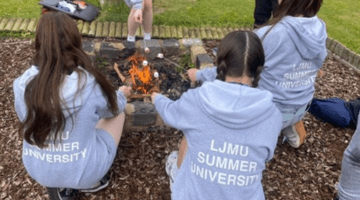

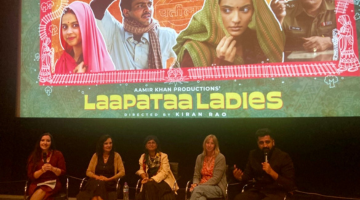

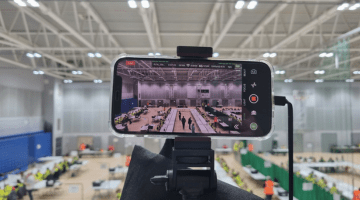


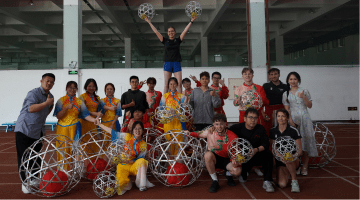
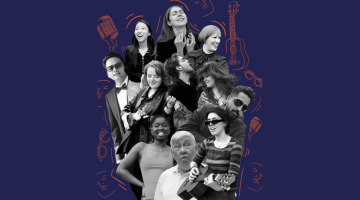
The university reserves the right to withdraw or make alterations to a course and facilities if necessary; this may be because such changes are deemed to be beneficial to students, are minor in nature and unlikely to impact negatively upon students or become necessary due to circumstances beyond the control of the university. Where this does happen, the university operates a policy of consultation, advice and support to all enrolled students affected by the proposed change to their course or module.
Further information on the terms and conditions of any offer made, our admissions policy and the complaints and appeals process.















